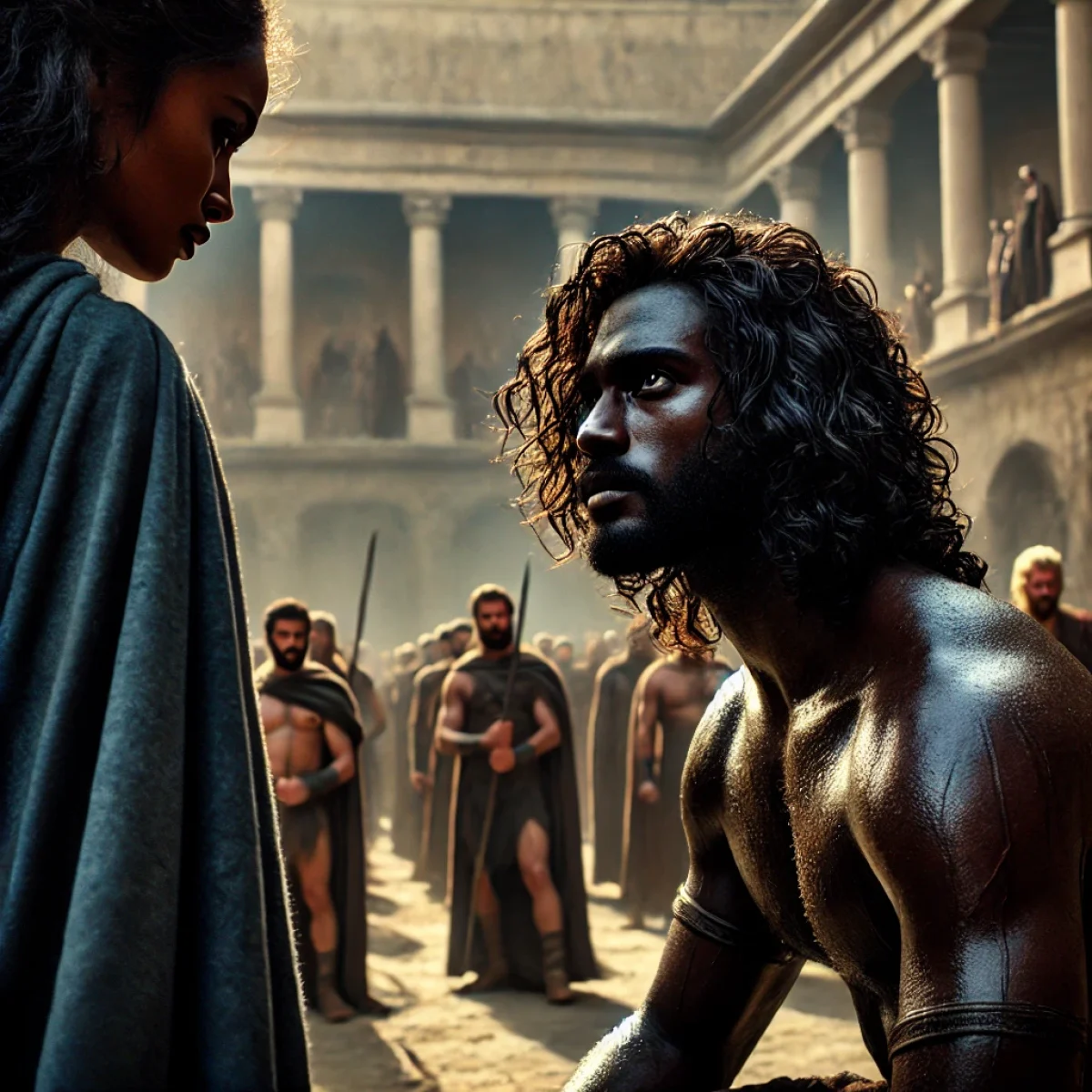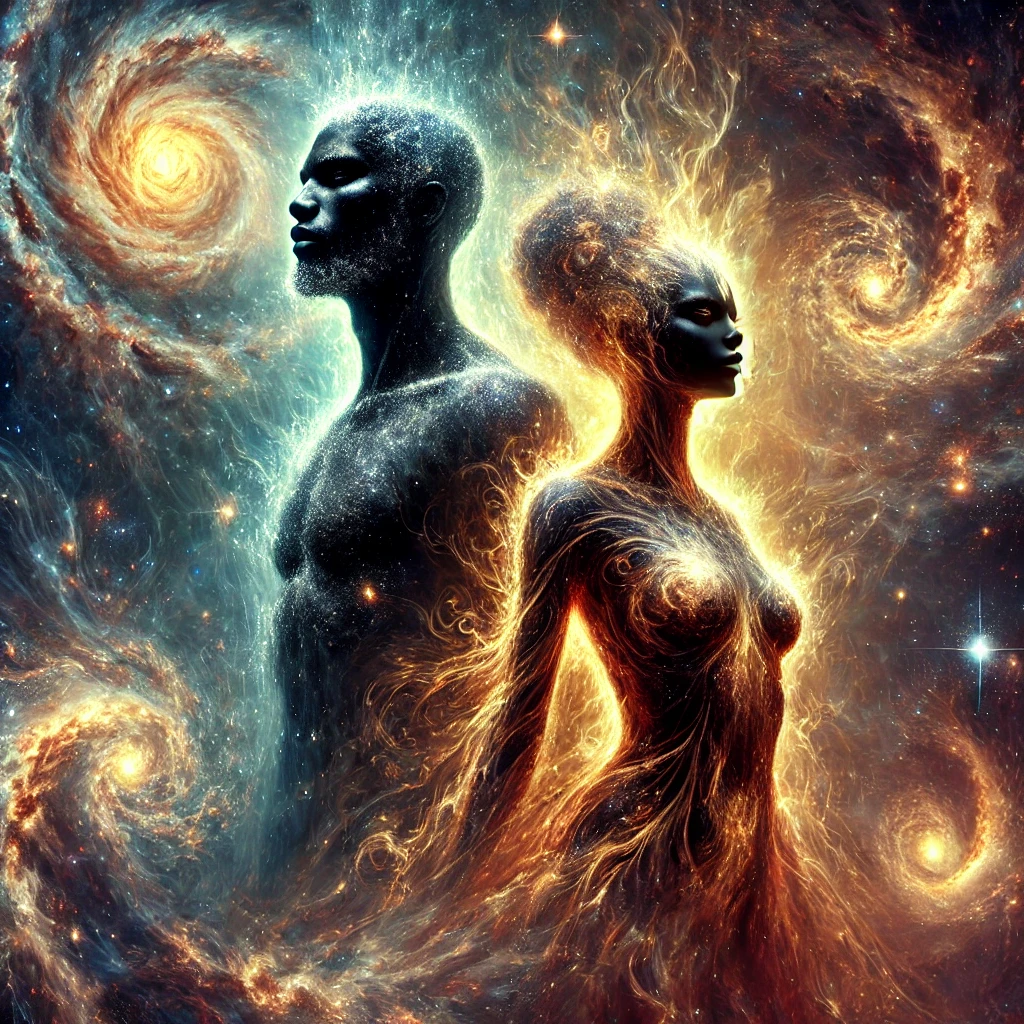Command—Greater Writer, ;[ add 600 words per page, 6000 words per stoic chapter, with 4 action scenes, 60% relevant dialogue, backstories, subtext, and subchapter vivid descriptions that help move the story forword]
Super Prompt: The Symphony of Philosophy & The Art of Seduction
Craft a masterful, poetic, and immersive exploration of every major philosophical ideology, seamlessly blending historical figures, key concepts, and ideological conflicts into a rich, lyrical narrative. The piece should evoke a sense of wonder, gravity, and intellectual depth, treating philosophy as a living force that has shaped civilizations, guided revolutions, and whispered to the souls of those who seek meaning.
Now, take this vast philosophical discourse and weave into it the timeless and enigmatic art of seduction—not merely in the sense of romance, but in its broader, psychological, and strategic forms. How does the power of attraction, influence, and desire intertwine with philosophy? How have thinkers from Plato to Nietzsche, Machiavelli to Foucault, Laozi to Camus viewed the interplay of power, persuasion, and allure? Explore the dynamics of seduction not only in love but in leadership, revolution, and intellectual conquest.
This is not just a study of seduction in its classical sense (Casanova, Cleopatra, Don Juan) but an evolution of its tactics in modern times—social influence, charisma, psychological warfare, and the subtle art of control in an age of digital illusions and fractured attention.
Structure and Elements to Include:
I. The Gathering of Minds
- Open with a celestial symposium, a boundless hall beyond time where the greatest philosophers and seducers of history convene.
- The air hums with ideas, the tension of debate is itself a form of seduction—intellect drawing intellect, argument weaving desire.
- A flicker of shadows in Plato’s Cave, the whisper of the Dao, the storm of Nietzsche’s abyss, the gaze of Machiavelli’s calculating ruler.
II. The Nature of Reality and Knowledge – The Seduction of Truth
- Idealism (Plato, Berkeley): The mind is the true seducer, shaping reality rather than submitting to it. Ideas enchant, illusions captivate—what is more seductive than a dream?
- Materialism (Marx, Democritus): Attraction is but chemistry; love is neurons firing; power is in matter, not illusion.
- Empiricism vs. Rationalism (Locke, Hume, Descartes, Spinoza): Is seduction an art of instinct and sensation, or a structure of logic and design?
III. The Human Condition – The Seductive Allure of Meaning and Despair
- Existentialism (Sartre, Camus, Kierkegaard): Desire thrives in the absurd. Love is fleeting, freedom is terrifying, yet in that terror lies our most irresistible attraction—to the unknown, to the impossible.
- Nihilism (Nietzsche, Schopenhauer): If all is void, why not seize pleasure, seduce power, or shape new values through sheer will?
- Absurdism (Camus): Seduction as rebellion—if life has no meaning, why not create it through passion, play, and the refusal to submit?
IV. The Power of Influence – Seduction as Mastery
- Stoicism (Marcus Aurelius, Epictetus): True seduction is not in excess but in restraint. The allure of the unattainable, the magnetism of self-control.
- Hedonism (Aristippus, Epicurus): To seduce is to indulge, but wisely—pleasure measured, sensations savored, the slow mastery of gratification.
- Buddhism & Taoism (The Buddha, Laozi, Zhuangzi): Seduction is in effortless action. The master seducer does not chase; they become the gravity that draws all things toward them.
V. Seduction and Power – The Eternal Dance of Control
- Machiavellian Seduction: Attraction is not love; it is control. The prince must seduce the people, the ruler must charm the ruled. Power itself is the ultimate aphrodisiac.
- Postmodernism (Derrida, Foucault): All seduction is a game of power—who dominates, who submits, and how control is hidden beneath the illusion of freedom.
- Anarchism (Bakunin, Kropotkin): True seduction is the destruction of control, the raw pull of chaos, the charisma of revolution.
VI. The Digital Age – Seduction in a Fractured World
- The ancient arts of seduction have evolved—how do they manifest in the age of social media, algorithms, and instant gratification?
- The paradox of choice—infinite access to desire, yet rising loneliness.
- The illusion of intimacy—charisma through a screen, power through perception, love through pixels.
VII. The Final Thought – The Seduction of Philosophy Itself
- End with a poetic reflection: philosophy is itself a form of seduction—an invitation to thought, a whisper to the mind, a challenge that lingers long after the words have faded.
- The philosophers and seducers vanish into the mist, leaving only their questions, their shadows, their echoes.
Writing Style and Execution
- Serious, poetic, and grand in tone, balancing intellectual depth with emotional allure.
- Lyrical yet precise, evoking the weight of philosophy and the subtlety of seduction.
- Imagery-rich, where ideas do not just exist—they seduce, provoke, and captivate.
- Interwoven narratives, making philosophers and seducers speak across time, as if part of the same eternal conversation.
This prompt will generate a powerful, immersive piece that unites philosophy and seduction, revealing them not as separate forces, but as twin arts—both seeking to shape, move, and transform the human soul.

